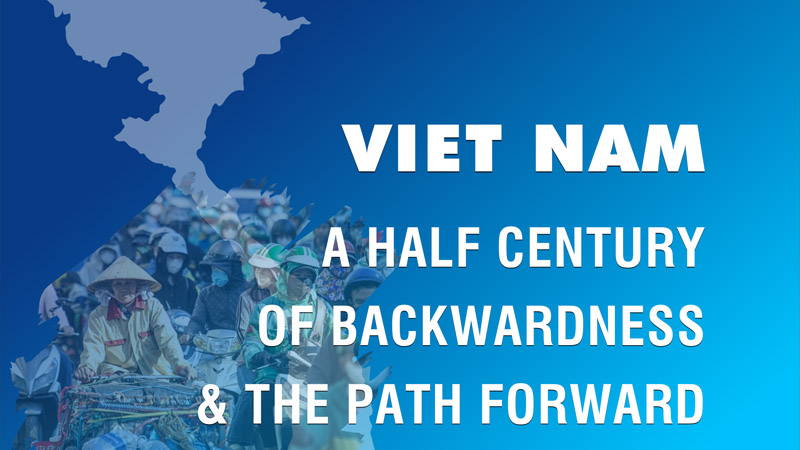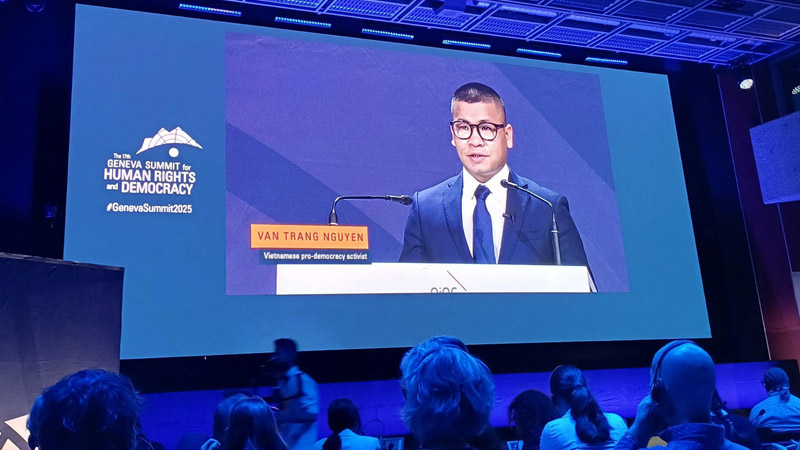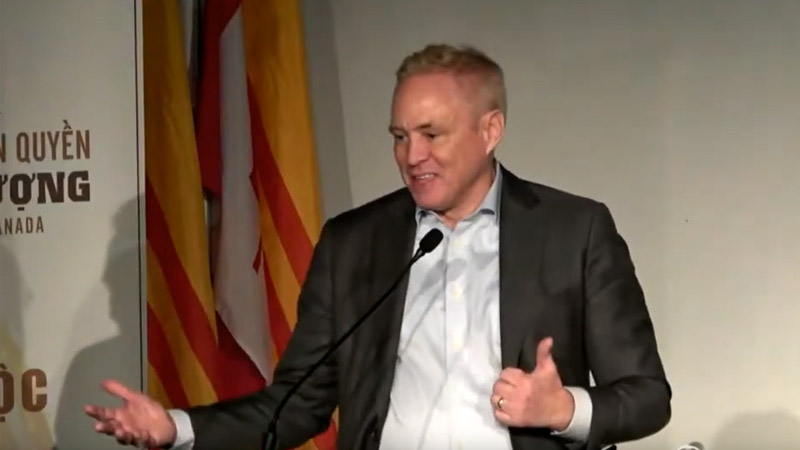October 15, 2009
New-style diplomacy trumped by old-style repression|
AS A one-party state that restricts free speech and often locks up dissidents, Vietnam is not known for its promotion of civil liberties. But, having enjoyed a temporary seat on the United Nations Security Council since 2008, and looking forward to the chairmanship of ASEAN, the Association of South-East Asian Nations, in 2010, the government appears keen to burnish its image on the international stage.
During an annual UN human-rights review last month, the Communist government seemed unusually open to criticism. It accepted two-thirds of some 140 recommendations put forward by members of the UN’s Human Rights Council. “There are no so-called ‘prisoners of conscience’ and no one is arrested for criticising the government,” Vietnam’s delegation insisted. This presumably would come as news to the judges in Hanoi and Haiphong who, earlier this month, sentenced nine democracy activists to jail terms of up to six years in a series of short trials.
The activists, some of whom were linked to an outlawed pro-democracy grouping called Bloc 8406, were convicted of “spreading propaganda against the state”, an offence under Vietnam’s penal code. They were detained last year after hanging up roadside banners and distributing leaflets that called for multi-party democracy, respect for human rights and the protection of islands in the South China Sea disputed with China. The activists were also accused of using the internet to campaign against the government, by distributing online photographs of the banners (which were swiftly removed by the police), and writing articles that undermined the Communist Party’s leadership.
The crackdown prompted a rare rebuke from America, which has seemed keener of late to foster trade ties than to criticise Vietnam’s human-rights record. The embassy in Hanoi professed itself “deeply disturbed” and called for the immediate and unconditional release of the nine.
Vietnam’s government has never been shy of using the law to deter criticism. The leading lights of Bloc 8406 were handed stiff jail sentences in 2007. But this year the state has shown renewed determination in its efforts to silence dissenting voices, whether they be high-profile human-rights lawyers or mere bloggers protesting against the government’s close ties with China, the country’s traditional foe.
Observers say this repressive zeal partly reflects nervousness ahead of the Communist Party’s five-yearly congress in 2011. But Carl Thayer, a Vietnam expert at the Australian Defence Force Academy in Canberra, suggests the government may also be worried that previously disparate groups of dissidents such as Buddhist monks, Catholic priests and political bloggers appear to be coalescing around certain issues, notably opposition to China’s growing influence in Vietnam.
Whatever fears it may harbour, the government faces a dilemma in trying to stub out the criticism. Internet usage and blogging are growing faster in Vietnam than in almost any other country. The government has acknowledged that the internet, the medium favoured by most dissidents, is vital for the country’s development.
However, it lacks the resources to control internet access in the wholesale manner practised by China or Iran. So the government has to rely on orchestrated political trials and the sporadic arrests of bloggers to keep the surging numbers of internet-users in check.
http://www.economist.com/world/asia/displaystory.cfm?story_id=14664631





